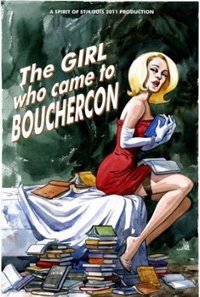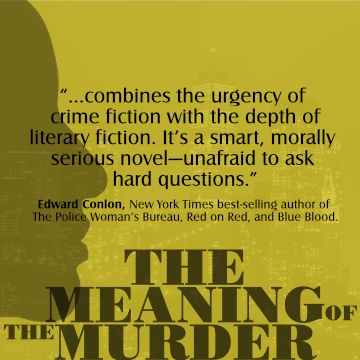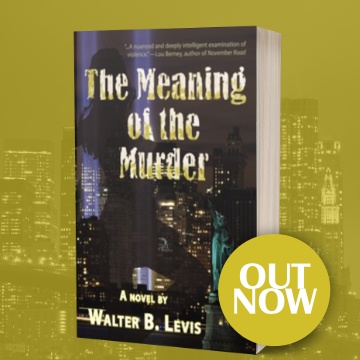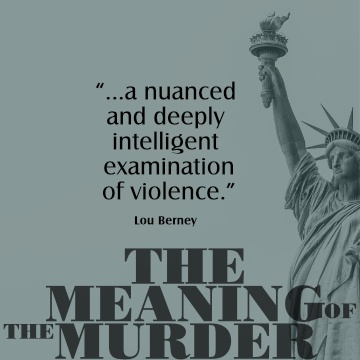 Jacques Filippi reports on Bouchercon 2011 — In crime fiction, the hero who saves everyone has dominated the genre for a long time. That hero is usually troubled by past events, has a big problem with the bottle and, mostly, is unable to sustain or even commit to an intimate relationship (one involving more than just sex). Often, this hero also struggles to control his temper.
Jacques Filippi reports on Bouchercon 2011 — In crime fiction, the hero who saves everyone has dominated the genre for a long time. That hero is usually troubled by past events, has a big problem with the bottle and, mostly, is unable to sustain or even commit to an intimate relationship (one involving more than just sex). Often, this hero also struggles to control his temper.
At the Bouchercon 2011 crime fiction convention in St Louis last weekend, crime novelists were signalling change. The move is on towards creating ordinary people with real problems: a family man with taxes and bills to pay, a detective with kids to take care of, a divorced woman with issues at work, and so on. Authors today say they write the stories they’d like to read, knowing that it will inevitably struck a chord with readers. The result is that heroes have become realistic protagonists who need to be able to save themselves, rather then save everyone else.
Speaking at Bouchercon, author John Rector gave an example when he mentioned that Jonathon King had sent a manuscript to Michael Connelly for advice. “Change your ending,” said Connelly. “Your main character needs to save himself, not be saved.”
The tension-builder
This reveals another reason for putting these ordinary people in extraordinary circumstances, in order to build more tension. Linwood Barclay went further, explaining the ordinary character with everyday problems, referring to current affairs: “I don’t know many people who lay awake at night worrying about terrorist attacks, but I know many who lay awake worrying about why their kids are not home yet,” the Canadian author said.
In a different panel, Mark Billingham made a similar comment: “I’m not scared of terrorists, but I’m scared of taking the wrong turn at the wrong time.” He said he prefers to write about what his readers will relate to and understand, regardless of where they live in the world.
Readers tend to support characters in which they recognise themselves, feeling a strong connection. As Lisa Unger mentioned: “Small stakes is what connects my readers to my characters.” Many of us wonder if we’re strong enough to face what the protagonists in many crime novels face. Linwood Barclay added, “I like writing about people who are ill-equipped to fight back.”
What would you do?
To get readers asking themselves ‘What would I do?’, Gregg Hurwitz likes to settle his main characters into their everyday life and examine their relationships; he does it by developing the dynamics between characters and getting to know them “When bad things start happening, then readers will care,” says Hurwitz, adding that when he wrote his first book, at 19, and then his next two or three, he didn’t really understand violence. “Maturity has made me see it differently,” he says. So now Hurwitz too is more interested in ordinary people who make the wrong choices. On the other side of the fence, we can care for – or at least understand – the bad guy if he’s not completely bad. Violence is then used less gratuitously.
One of the conclusions from Bouchercon this year was that if we keep reading crime fiction, it’s because the genre can show us the realities of ordinary people in everyday lives. It connects us all around the world by revealing a reality that is not entirely dissimilar from one country to another. Just look at the increasing interest in writers from South Africa, Scandinavia, the Far East and Central Europe. Readers want to learn about people from everywhere, but they know it won’t happen by watching the news. In that regard, because they talk about all of us while telling their stories, good crime writers are the historians of the present.
Authors’ recommendations
While at Bouchercon, a few well-established writers were asked which newer authors they currently recommend. This is what they said:
Laura Lippman: Gillian Flynn, Megan Abbott, Lisa Lutz and Sara Gran
Laurie R King: Lindsay Faye
SJ Rozan: Taylor Stevens and Nathan Larson
Val McDermid: MJ McGrath and Stuart Neville
As for Linwood Barclay, he strongly recommends Defending Jacob by William Landay. “It’s the best book I’ve read this year,” he said. However the book is only due to be released 31 January 2012, so we’ll have to wait. I picked up two advance copies and am giving one away. Come to my site at The House of Crime and Mystery for details.









A good article and interesting summary. As a crime writer myself I agree that the characters you create need to have ‘real’ lives and ‘real’ problems and they don’t always solve them or make the right decisions!
Thank you for taking the time to leave a comment. Always interesting to hear from different writers. Keep your characters real, that’s how we, the readers, like them.
That’s a fascinating article. I am workshopping some characters at the moment for what I plan to be my first full length crime novel, and funnily enough I’m spending more time figuring out their ‘ordinary’ characteristics than the more crazy stuff! I want people to be able to relate to them (and hopefully care about them) despite the fact they’re caught up in extraordinary circumstances. That worked for me as a reader with the Millenium Trilogy. It’s a great time for crime fiction at the moment :0)